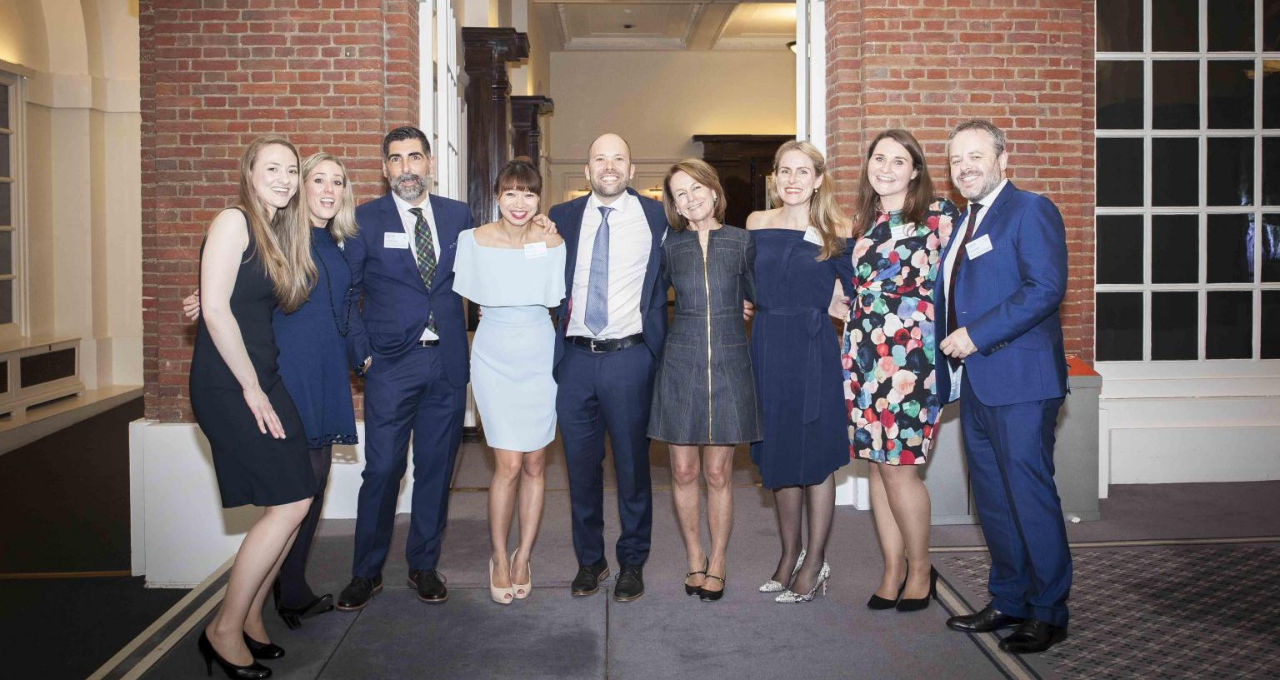
Following decades of being a niche and often contentious topic, sustainability has become an increasingly mainstream issue, with more governments and corporations recognising that substantive and concerted measures are needed to address the urgent challenges of climate change.
“The tide is turning,” says Trang Chu Minh, who works across content, sustainability, diversity and inclusion and marketing at the London Stock Exchange Group (LSEG). She is also an alumnus of the Master of Science in Communication Management (MCM) programme offered by Singapore Management University’s Lee Kong Chian School of Business.
“Companies across different sectors are coming under regulatory pressure to set sustainability targets and policies and report on their sustainability initiatives,” she notes. “And a wide range of frameworks and standards are supporting companies in their sustainability drive.”
That makes it a heartening moment on many levels, not least personally for Trang, a longstanding advocate for social and environmental issues. She has led communications campaigns on the subject for the Thomson Reuters Foundation, and spends her spare time writing about sustainability (and other social and environmental issues) for various publications.
In her current role, one of her highlight projects included the creation of a global sustainability policy for Refinitiv’s marketing and communications campaigns. And because she is so well-versed in the topic, Trang can also see clearly that the fight to protect the environment is far from over.
As sustainability becomes a more widely championed ideal, the risk of greenwashing – conveying a false or misleading impression about how a company's products and practices are environmentally sound – has also increased.
“I see so many brands these days exploit sustainability as a marketing ploy, or simply consider it another compliance box-ticking exercise,” Trang points out.
How can such tendencies be nipped in the bud? For starters, sustainability should be embedded within the strategy department of the organisation, rather than within the marketing and communications department. By doing so, a sustainability mindset becomes a guiding force that shapes every aspect of an organisation’s operations.
“Implement a robust sustainability policy that considers every aspect of your carbon footprint before you start thinking about communicating your sustainability milestones externally,” she advises.
When it is time to communicate, prioritise transparency. "Charities must provide more transparency on how they use donor and grant funding to do good, social enterprises need to demonstrate how they balance profit with purpose, and companies need to communicate how they can genuinely become a force for good," says Trang.
Honest communication also means that institutions should not just trumpet their triumphs. She always advocates for companies to also communicate the failures they encounter during their sustainability journey, as they present learning opportunities and authentically engage internal and external stakeholders.
Additionally, membership in reputable industry bodies and initiatives, as well as gaining independently verified certifications are also signposts of credibility and commitment.
For instance, more organisations are joining the United Nations Global Compact, an initiative that aligns business strategies with the UN Sustainable Development Goals.
Many companies are also seeking B Corporation certification, which measures their social and environmental performance, including the impact of their practices on their workers, customers, communities, and the environment.
“Becoming a B Corp or a UN Global Compact member can provide a really powerful platform to improve, measure and communicate your social and environmental impact,” she notes.
That kind of communication is becoming increasingly important, as doing business and doing good have become much more intertwined. Trang’s desire to delve deeper into the study of communications in the context of business was the key reason she enrolled in the MCM programme in 2014.
“While I spent most of my career working across the cross-section of content, journalism, sustainability, marketing and communications, I come from a political science and international relations background, and felt the need to complement my existing knowledge with a business degree,” she says. “I was drawn to the fact that the MCM programme was part of SMU’s business school curriculum and found the combination of communications-specific modules with general business studies really attractive.”
A child of Vietnamese immigrants, she grew up in Hungary and had attended universities in the UK and Australia. SMU marked her first experience of education in Asia — another pull factor, as was the opportunity to spend part of the programme at the University of California, Los Angeles, in the United States, and Università della Svizzera italiana in Switzerland.
Most importantly, “what I found most valuable about the MCM programme was the opportunity to connect with and learn from some of the most seasoned and knowledgeable communications professionals in my cohort,” she says. “Keeping in touch with and consulting these inspiring and talented individuals has helped shape my professional journey in an immensely positive way, including my drive to champion sustainability and social entrepreneurship.”
That drive continues, especially in today’s climate. As the world shifts into post-pandemic recovery mode, there is no guarantee that the push for sustainability will continue, she warns. “Many worry that sustainability will take a backseat to economic recovery. Organisations and sustainability advocates like myself must weave into our storytelling the reasons sustainability should be placed at the heart of recovery plans. The pandemic offers us an opportunity to build back better, and we must act fast as we are increasingly suffering from the adverse effects of climate change.”
Speak to our Admissions Advisors
Singapore Management University
Lee Kong Chian School of Business
Graduate Programmes Office, Level 4
50 Stamford Road, Singapore 178899
Tel: +65 6828 0882
Join us at the upcoming events
There are no upcoming events.